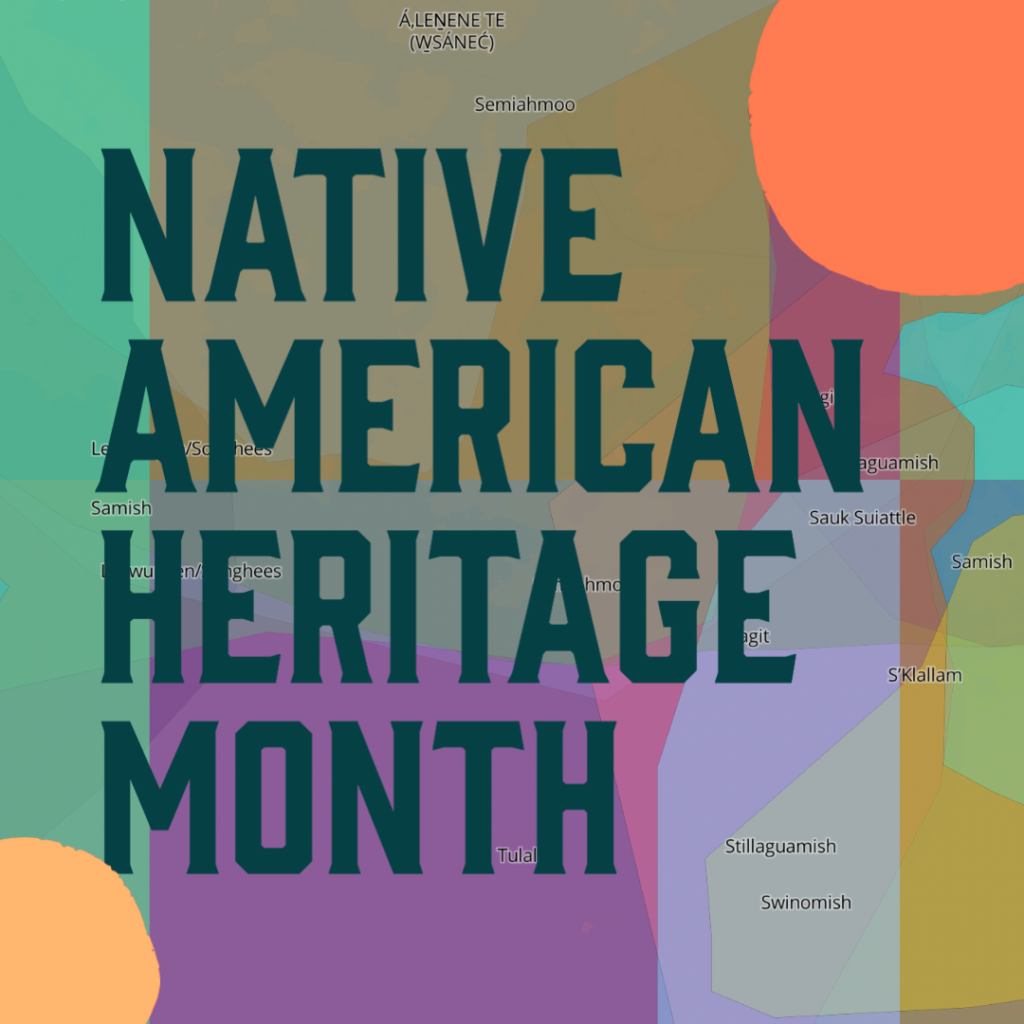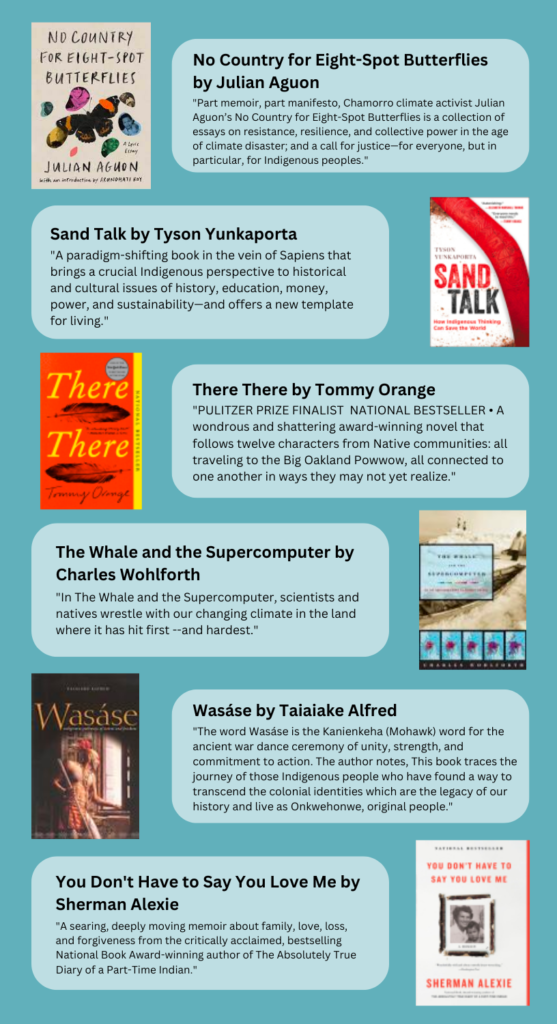It’s Native American Heritage Month, and here at Friends, we’re reflecting amongst ourselves and with our partners, exploring what it means to be good allies to Tribal Nations. Our work takes place on the homelands of the Lummi, Saanich, Klallam and Samish who have a deep history rooted here in their traditional fishing grounds—though many Tribes and Coast Salish peoples have ancestral ties and lived in harmony with these lands and waters since time immemorial.

Resources for learning and discussion
Indigenous-Led Organizations in our Region
The following is a list of Indigenous organizations involved in environmental work in our region. It is by no means an all-inclusive or absolute list—it’s a work in progress of organizations we are following to better understand indigenous voices in our region, especially as it pertains to environmental protection. If you have a recommendation for an organization to add to the list, please email us!
Exploring a Sense of Place — Interactive Maps
- Native Land Digital — an interactive map to explore indigenous territories, languages, and treaties.
- Tribes of Washington Map —an interactive map to explore Tribes residing in Wa State, with links to their respective websites.
- Coast Salish Place Names of the San Juan Islands — an interactive map that offers a present-day look at historic Coast Salish locations throughout the San Juan Islands and the Strait of Georgia.
Understanding Treaty Rights
- Not For Any Price, Film Short, Northwest Treaty Rights: “a 15-minute documentary about how the Lummi Nation put their treaty rights on the line and saved natural resources for everyone.”
- Ferndale Schools – Inaugural Treaty Day Recognition, 2020, Children Of The Setting Sun “A school district declares “Treaty Day” and in so doing, recognizes one of the most important events of Pacific Northwest chronology, the Point Elliott Treaty of 1855.”
- Treaties Resources from Northwest Indian Fisheries
- Treaty Trail, Washington Historical Society
Relevant Online Readings + News
- Stolen Lands: A Black and Indigenous History of Land Exploitation, Yes Magazine
- In A Season Of Rampant Anti-Indigeneity, Here Are Some Things You Should And Shouldn’t Do To Be Pro-Indigenous, Community Centric Fundraising Blog
- Canada Turns to Indigenous People to Save Its Forests, New York Times
- Revitalizing Indigenous Connections: Celebrating Native American Heritage Month 2022, Department of the Interior
Watch + Listen + Read
- Young and Indigenous Podcast, S2 | Ep. 004 | Skelotses — If you live or spend time in the San Juan Islands we highly recommend giving the latest episode of this podcast a listen! Shared from a youth prospective, it’s an illuminating journey of Lummi youth exploring their past with elders.
- Children of the Setting Sun book recommendations
- Post-Contact Culture Changes among the Lummi Indians, by Wayne Suttles (Starts on page 29)
- Herring and People of the North Pacific, Sustaining a Keystone Species, book
- Living Tradition: Reef Netting in the San Juan Islands, Lopez Island Historical Society, lecture recording
- Blood Memory, film
- Dawnland, film available on PBS for a fee
- Indian Horse, film
- All My Relations, podcast
Here at Friends of the San Juans …
We strive to be the best allies we can by centering and supporting Tribal Nations in their fight to protect this place we all love. First people have been at the frontline of the environmental advocacy movement since the beginning of beginnings. We have much to learn from their stewardship of the San Juan Islands and the Salish Sea. We’re dedicated to honoring and amplifying Indigenous wisdom as we work to protect the land, waters, and creatures that call this place home.
We care deeply about rebuilding trust and relationships. We know this is not an overnight process: a one-and-done workshop or a checkbox in our strategic planning. It takes time, reciprocity, and deep listening. Pull a chair up. Have a seat at the table. Join us as we explore how to effectively honor and support Indigenous peoples in their long history of fighting for environmental justice.
Here are a few of the questions we are asking ourselves …
“Who is our work serving?”
“How are we contributing to or enforcing the oppressive systems that strip away
Treaty Rights and Indigenous Ways of Life?”“Is our land acknowledgment just checking a box? Is it a starting point to do more?
“What are our blind spots and biases?”
“How can we do more to honor, amplify, and respect front-line, Indigenous voices in our work?

